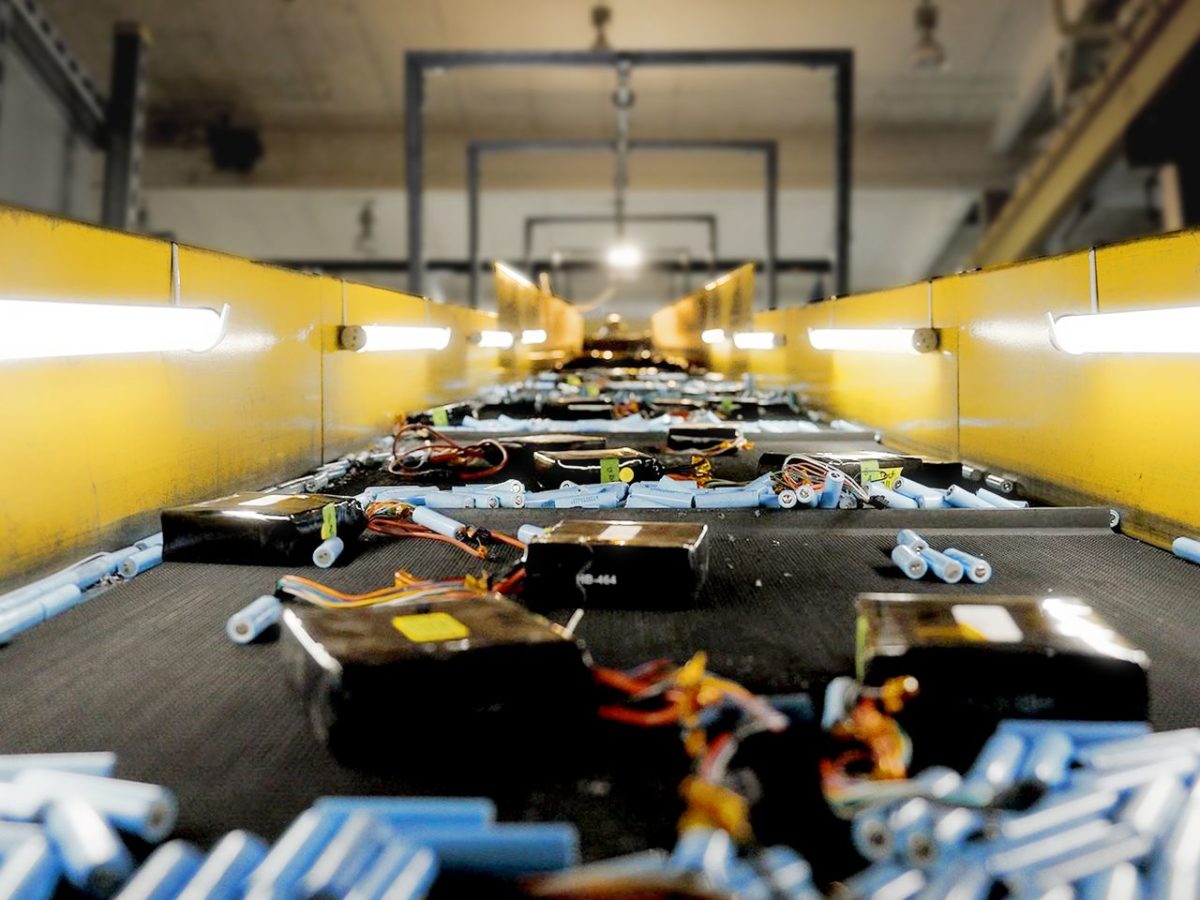With demand for battery storage set to go nowhere but up in transitioning to a carbon-free economy, a fair number of sustainability concerns are being raised. Not the least of them is making batteries a truly circular and sustainable product.
Against the backdrop of the mounting challenge of lithium-ion battery recycling, Toronto-based Ly-Cycle has partnered with second-life battery specialist Eco Stor and battery manufacturer Morrow Batteries to build a new commercial lithium-ion battery recycling facility in southern Norway.
The facility will be capable of processing up to 10,000 tons of of lithium-ion batteries a year, including battery manufacturing scrap, full EV packs, and energy storage systems, with operations scheduled to start in early 2023. The parties are currently finalizing the site for the new recycling facility and awaiting regulatory approvals.
Oslo-headquartered Eco Stor, a portfolio company of Norwegian utility company Agder Energi, will provide the joint venture with end-of-life lithium-ion batteries, along with battery manufacturer Morrow Batteries supplying lithium-ion battery manufacturing scrap from its planned battery manufacturing facilities in Norway.
Based in southern Norway, Morrow Batteries is currently in the process of establishing its 43 GWh giga-factory that will utilize 100% renewable hydroelectric power. The factory is slated to be operational from Q4 2024.
As the majority owner of the joint venture, Li-Cycle will provide equipment, technology, technical services, and operational management for the new facility, while having the right to acquire 100% of the facility’s production of black mass — a dense, cakey mixture containing a blend of critical battery materials, including large amounts of lithium, manganese, cobalt, and nickel metals.
As one of the leaders in the adoption of electric vehicles, Norway is on track to phase out sales of new internal combustion engine vehicles as early as April on the back of its consistent and steep downward trend in sales of gas cars. “This would be three years ahead of the 2025 target proposed by the Norwegian government and could result in a significant, long-term supply of end-of-life batteries,” Li-Cycle said, adding it expects to be well-positioned to ultimately recycle and bring end-of-life batteries back into the lithium-ion battery supply chain.
But Li-Cycle is not alone in its ambitions. Another lithium-ion battery recycling plant broke ground in Fredrikstad, Norway, last year. The facility operated by Hydro Volt AS, a joint venture formed between Norwegian materials processing company Hydro and Sweden-headquartered lithium battery manufacturer Northvolt, will have capacity to process more than 8,000 tones of batteries per year, with the possibility to expand.
Spoke & Hub
Currently, the largest capacity lithium-ion battery recycling company in North America, Li-Cycle operates plants in Kingston, Ontario, and Rochester, New York. Last month, the company announced it will expand the capacity of its Rochester facility by about 40% due to the rising volume scrap in the U.S. The plant will have the capacity to process the equivalent to approximately 90,000 tons of lithium-ion battery feed annually.
Li-Cycle says its recycling processes are applicable to all chemistries and formats of lithium-ion batteries, capable of recovering 95% of all constituent materials and environmentally optimized with no production of landfill waste. Their proprietary Spoke & Hub Technologies use a combination of mechanical safe size reduction and hydrometallurgical resource recovery specifically designed for lithium-ion battery recycling.
In the Spoke phase, all types of lithium-ion batteries are transformed from a charged state to an inert product in a safe and efficient manner. What is left after the initial plastics and metals are separated out is black mass, which is the feed for Li-Cycle's Hub. There, cathode and anode materials are processed into battery grade end-products for reuse in lithium-ion battery production or other applications in the broader economy. The Norway facility will be Li-Cycle's first European Spoke, whereas its only Hub plant is located in Rochester.
In addition to three other Spoke facilities in the U.S. in construction or advanced development, the company is targeting its second Spoke in Europe to be in Germany. It is expected to have an annual processing capacity of 10,000 tones of lithium-ion battery input a year.
This content is protected by copyright and may not be reused. If you want to cooperate with us and would like to reuse some of our content, please contact: editors@pv-magazine.com.




The cost to recycle lithium batteries is unacceptable. Batteries should be only used for toys not major transports.